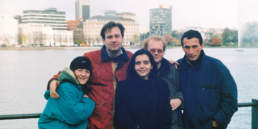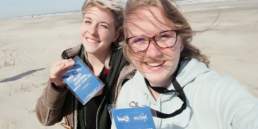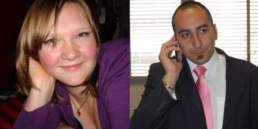Antonis Triantafyllakis from AEGEE-Cluj-Napoca is one of the best-known people in AEGEE. Not only because of his work as Academy Speaker or member of the Summer University Coordination Team. You can basically meet him at every corner of the Network and he knows AEGEE inside out. Now he wants to put his knowledge and skills in the service of the Youth Development Working Group (YDWG) – as its new Speaker.
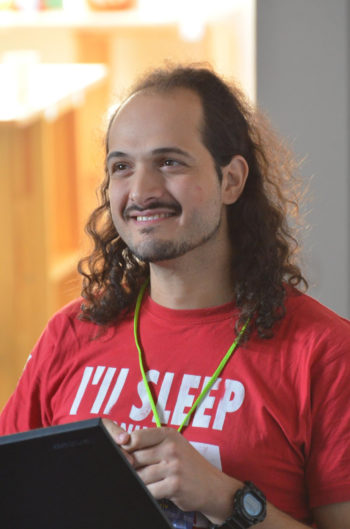 Gunnar Erth: Antonis, how would you describe yourself in five keywords?
Gunnar Erth: Antonis, how would you describe yourself in five keywords?
Antonis Triantafyllakis: Insightful, adventurous, innovative, inclusive and flexible.
How come you applied for coordinator of the Youth Development Working Group, although you haven’t been a member yet?
Prior experience as a member would have been useful, but I can compensate it with a lot of otherwise relevant experience: I was among the original proposers of the Focus Area, co-facilitated the development of the first related Action Agenda objectives and contributed to the second ones, was among the initiators of the Internal Education task force and have a lot of experience in international youth work training and non-formal education – one of the main means for implementing the agenda. Moreover, I am happy to work extensively with the current Working Group members on a thorough knowledge transfer and towards the implementation of the next objectives.
According to your programme you want to focus on the recognition of soft skills inside and outside of AEGEE. Can you tell us how you imagine precisely the external recognition of soft skills? Will AEGEE members get recognised diploma?
I am not in favour of diplomas, as they are not fully compatible with the principles of non-formal education – meaning: learning for the sake of learning. Certificates can be useful, the AEGEE-Academy offers certificates after each training event explicitly mentioning the skills developed, which is more practical than a diploma. But if even institutional certificates like the Youthpass, based on the eight key competences framework of the European Commission, are virtually ignored in the labour market, what can AEGEE do? That change requires a culture shift that doesn’t happen overnight. But collaborating with institutions and organisations for advocacy and with local companies for a needs-based skills development may get us there faster. It may seem far-fetched, but considering we already take part in relevant practices of the European Youth Forum and we have networks to utilize, it looks more realistic and promising if a more strategic approach is followed by a motivated group.
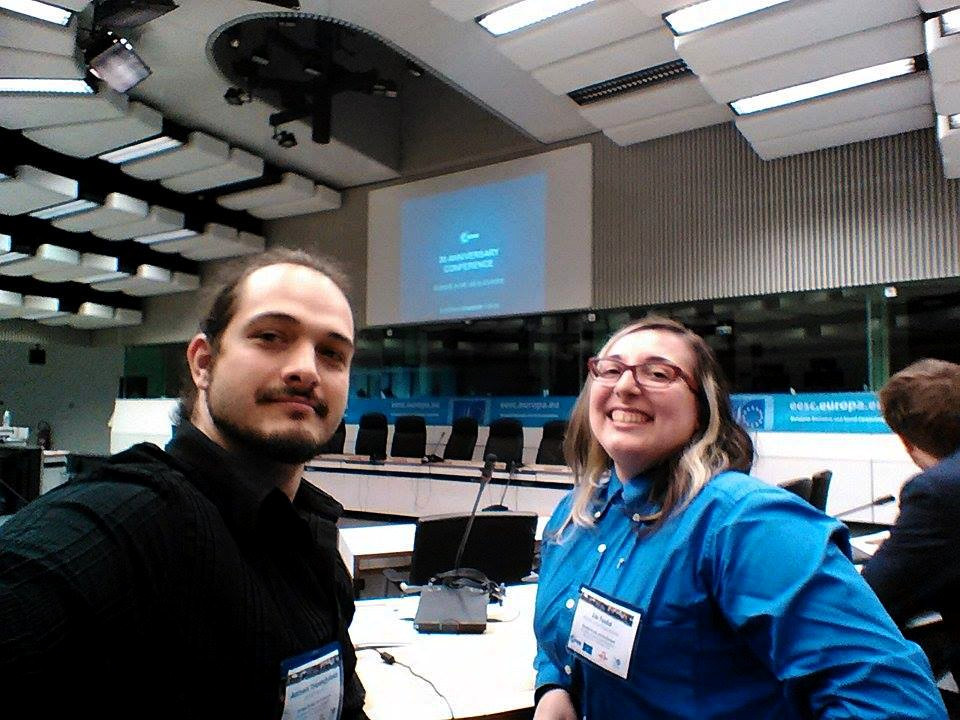
At which institution exactly and how do you want to lobby for this recognition?
AEGEE is already an active member of umbrella organisations like the European Youth Forum and LLLP, which have relevant practices in advocacy we can contribute more strategically to. The European Commission has recently adopted the “New Skills Agenda” and has already produced results we can take advantage of. We can utilise and promote internally the revised Europass in a way to “put AEGEE in our CV” and make the results visible; and we can research and showcase the impact of AEGEE by working with our alumni that have found or created their jobs as a result of their experience in AEGEE. These two steps are relatively easy to implement, practical and can be directly used for advocacy, using the institutions’ own tools in a way that has the impact they want to have.
 Are there other youth or student associations that managed such an external recognition?
Are there other youth or student associations that managed such an external recognition?
The European Youth Forum comes to mind again. They’ve released studies and a policy paper showing both the “skills mismatch” and the related skills developed through volunteering in youth organisations. Now they’re fighting strongly for quality internships. We are an active member of the European Youth Forum, already working with them in the field. What we can learn from that is that it’s feasible, but I believe we should be more strategic with concrete actions and make those more visible.
At the EPM the YDWG helped developing ideas in the field of youth development. Without referring to the outcome of the EPM session, can you tell us your very own ideas how to put the proposed Mental Health objective into practice in a way that has a great external impact?
I am very happy about the topic, as it’s very important but highly neglected! My focus would be on achieving a healthier work-life balance, starting from our volunteer work in AEGEE. We could initiate or provide opportunities for our members to share their best practices and inspire each other. Then we could gather their tips and tricks and create guidelines for locals and bodies to implement and share the results. Since I keep mentioning advocacy, we can collaborate with Mental Health Europe on that.
The same counts for the EPM objective of employability: what are your ideas to create maximum external impact?
I have already shared some ideas. Reports from various institutions mention “skills mismatch” as the main reason behind the high levels of youth unemployment. Employers want skills, the reports say, and young people have knowledge thanks to their education but not the necessary skills. We can better show how these skills are developed through volunteering in organisations like AEGEE, by showing how they’ve already worked for our members. Have you seen the slides on “AEGEE’s Impact” in the extended presentation of AEGEE, citing the findings of a 2013 survey? We can re-run that survey with more people, in collaboration with our alumni, who have already seen the impact of AEGEE in their lives and jobs. That could provide a clear proof of that impact in practice.
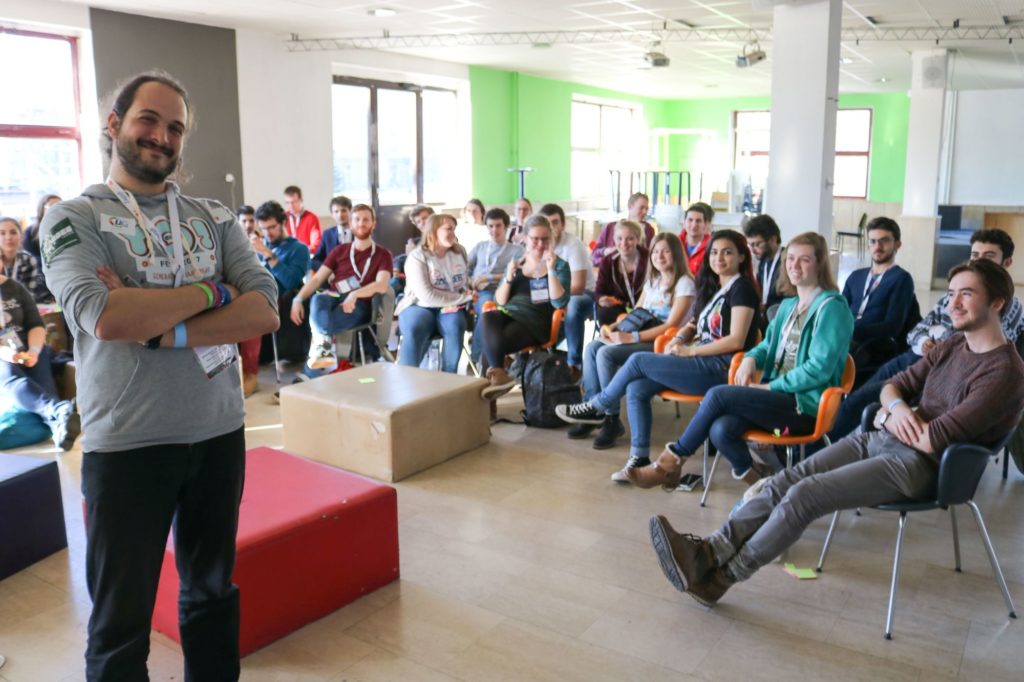
You surely have other concrete ideas for international youth development projects for antennae. Can you tell us two project ideas?
I like very much the idea of the “Youth Development Month” by the current YDWG! I would develop it further to include the ideas above. For example short workshops on how to use the new Europass to put AEGEE in your CV and finding members that have benefitted from AEGEE in their jobs, interviewing them to better show the impact of AEGEE in practice – what about a collaboration with Faces of Europe? Another idea would be a long term project where locals would find companies willing to work with young people, analyse their needs in skills and work on activities that develop these specific skills on their members for a full year, matching the skills developed directly to the local labour market. The companies would have to guarantee some jobs or paid internships in such a partnership, but that can be easier to achieve if they also support the process with supervision and training. This can only work through a strategic collaboration with other bodies and locals internally, and other organisations, institutions and companies externally, with a long-term vision in mind.
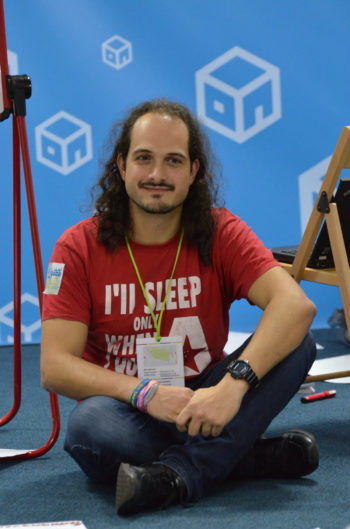 You have been active in several European bodies. Some of them have seen hard times, especially the SU project and the Academy. Since both are related to youth mobility: In hindsight, what could you have done to increase the number of Summer Universities and Academy training events, as well as the number of applicants?
You have been active in several European bodies. Some of them have seen hard times, especially the SU project and the Academy. Since both are related to youth mobility: In hindsight, what could you have done to increase the number of Summer Universities and Academy training events, as well as the number of applicants?
I have a different view on that after my relevant work. Sometimes less is more. Quality is more important than quantity. We keep asking for more members and events but we forget asking why we’re doing what we do. I think one of the main reasons for our diminishing numbers is our recruitment. We keep trying to “lure” new members by promoting cheap travelling and partying and then expect them to change their initial motivation and suddenly become active citizens! Sure, it has worked in some cases, but it’s an inefficient strategy.
What would you suggest?
If for example you promote SUs for the amazing opportunities for intercultural exchange and personal development – instead of cheap vacation – then you attract the target group you want instead of hoping to convert it afterwards. I believe it’s ok to have less SUs in the meanwhile if their impact is higher. Once we regain a unique selling point closer to our vision then our numbers may start increasing again thanks to a positive vicious circle caused by the target group we’ll be more successfully attracting like that. It may take years to achieve, but I don’t think it’s realistic to hope for instant change, as it requires a culture shift. Similarly, there’s room for improvement when it comes to the promotion of our training events, but a major obstacle is also the fact that there is an overlap with other types of events and too many events happening at the same time which, coupled with the small percentage of active members, doesn’t leave enough people for all events. We simply don’t have enough active members and they also have a limited budget and time to devote. This was inconceivable in the first European Schools, as there was a calendar of events that didn’t allow overlapping events. And this was a time when we had a lot more members. But it’s something that will be implemented again after the Agora, thanks to having that discussion in the internal education task force. I’m ok with smaller numbers if the quality is higher and more aligned to our vision. What does this mean for the upcoming group? Once again collaboration and strategic planning.
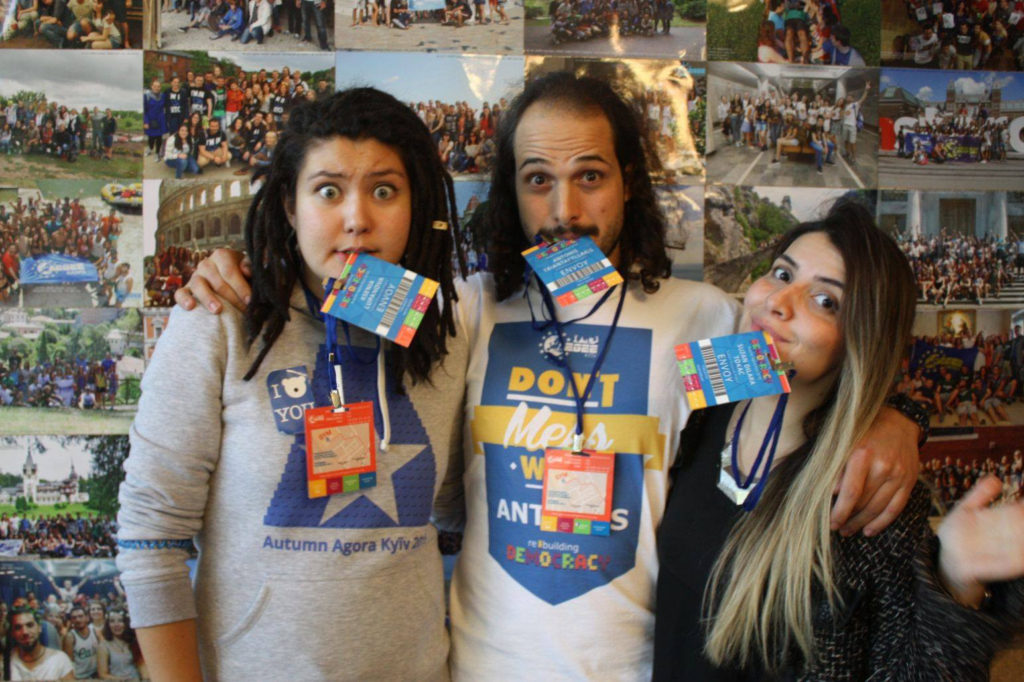
You wrote that you’ve become an expert in gamification. How can youth development in AEGEE make successful use of gamification? Can you give three examples?
First, open badges are a cool way to raise awareness of what you’re learning in your AEGEE events, in a way that can motivate you to get more, connected to your own path in AEGEE. It’s an electronic, versatile, easy to use tool for recognition. Second, events as storylines in which you constantly develop by building up on blocks of experiences, instead of having arbitrarily placed activities. Imagine for example an SU as a role playing game in which the participants are playing characters that level up with every activity and show the connection to the SU’s learning objectives more clearly. I’ve already implemented that as a pilot and there is a lot more in that direction! Third, gamifying your entire path in AEGEE by gathering the skills developed through attending events is a framework that can potentially be developed by the YDWG in collaboration with other bodies – the most relevant ones are already involved in internal education – and locals for the implementation. It depends on a strategic collaboration between everyone involved but “strategy” and “collaboration” are clearly the keywords of my plan.
Additional questions from the network
Question 1: Will you still join the working group in case you won’t be elected?
I’d be happy to! This gives me the opportunity to say that I don’t see this as a competition and neither should the Agora. There’s no better or worse between the two people applying for the position. We are both highly skilled and we are actually friends and voiced our willingness to support each other. It’s up to the Agora to choose whose vision they are more in favour of, but it’s whether that fits the overall vision of AEGEE; it’s not a fight. I believe that’s the mentality we should have if we truly believe in a borderless Europe we can call home.
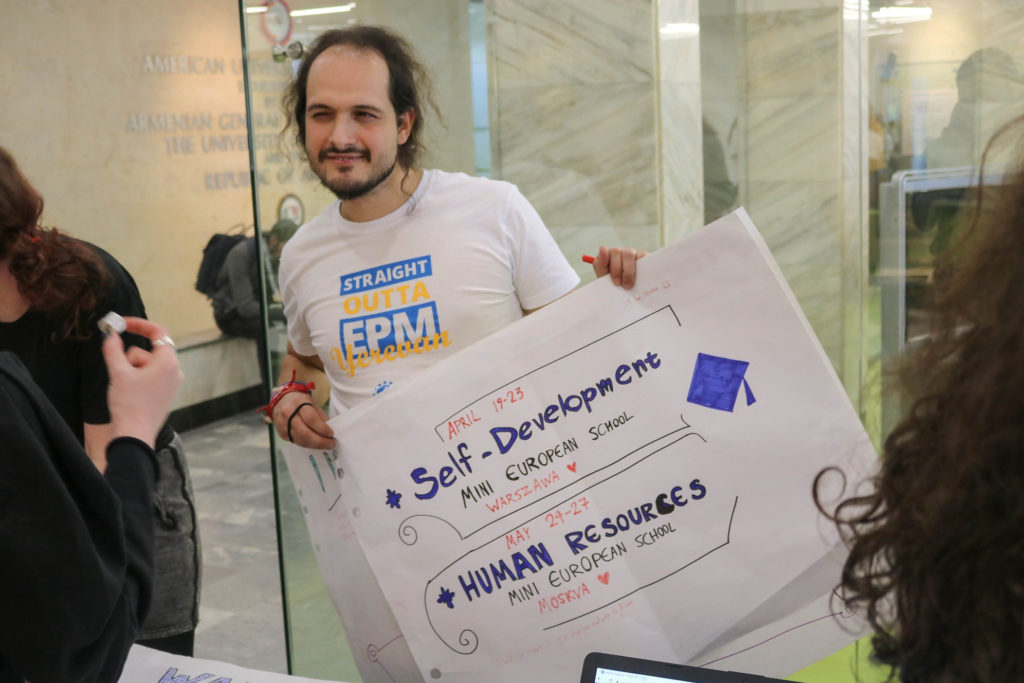
Erika Bettin, AEGEE-Verona: In every WG there is a policy officer in charge of possibly drafting a policy paper. Of course, you will have to discuss the topic with the team, but what are some areas that can be tackled when deciding on the topic?
I think the most beneficial thing for the policy paper is to showcase real-life examples of skills gained through volunteering in AEGEE and how they have resulted in getting or creating jobs, like mentioned above. The policy office can run the research in collaboration with our alumni and use it towards policy recommendations on an institutional level based on the impact on our members. These are my first thoughts, but obviously more ideas will appear once a group of motivated members gets together and works as a team, which I’m excited about, should I get elected!
Erika Bettin, AEGEE-Verona: You have already been a working group coordinator. Can you give some examples of your achievements? What we’re the things that you wish you would have done differently? How would you implement both successes and failures in your eventual second term as coordinator?
Thanks to the work of the Youth Mobility Working Group more members became aware of the reality of the visa process in Eastern Partnership countries and many locals are still utilising the renewed visa invitation letters the group developed. However, I underestimated the time the group members had to put in and a more strategic alignment to the vision and structure of AEGEE. I now have the relevant experience to do this better, which is why I keep mentioning the words strategy and collaboration. I know much better how AEGEE functions and how the different bodies can collaborate, and have a better idea of how the group’s work can relate to the vision of AEGEE, apart from being better skilled in managing teams. I hope the other answers can show the more strategic and pragmatic approach.
Written by Gunnar Erth, Golden Times
You can read Antonis’ full application here.

